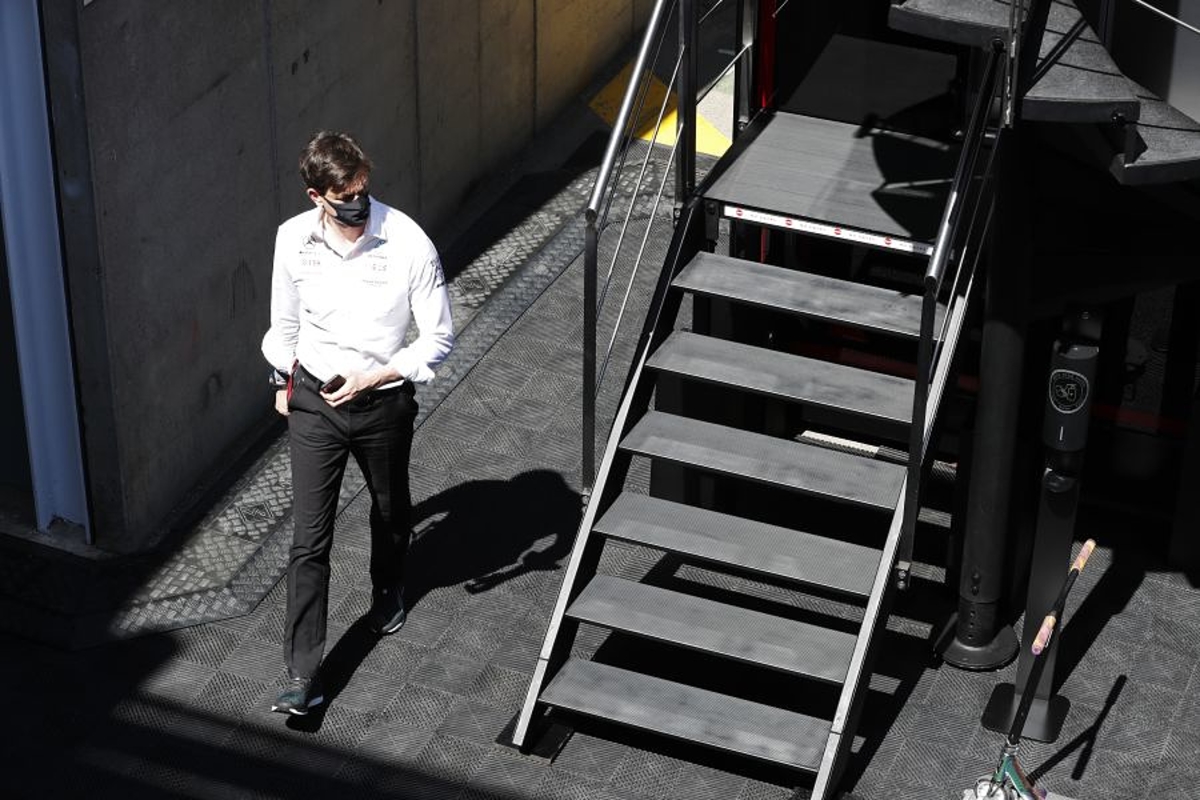
Latest News

F1 Social
NASCAR trailer mocks F1 ahead of 2026 season
- 2 hours ago

Latest F1 News
Cadillac launched their first F1 car with an $8m Super Bowl ad and got sued
- 3 hours ago

F1 Social
Ferrari F1 star Charles Leclerc joins Lady Gaga in star-studded birthday tribute
- Yesterday 20:51

F1 Off the Track
F1 driver Lance Stroll played matchmaker with Olympic star after urinal meeting
- Yesterday 19:51

Latest F1 News
Aston Martin F1 2026 Car Launch today: Start time and watch the big reveal LIVE
- Yesterday 19:49

F1 News & Gossip
Lewis Hamilton urged to find 'happiness off track' after going public with Kim Kardashian
- Yesterday 18:55
Most read

15.000+ views
Daniel Ricciardo is back in F1, but this time it's different
- 31 january

10.000+ views
Lewis Hamilton split prompts major Angela Cullen decision
- 5 february

10.000+ views
F1 News Today: Adrian Newey ‘furious’ as McLaren unveil test car
- 26 january

10.000+ views
F1 2026 WAGs: Lewis Hamilton is 'dating Kim Kardashian'?
- 2 february

7.500+ views
F1 Drive to Survive Season 8: Release date and big storylines for hit Netflix series
- 21 january

5.000+ views
Kelly Piquet: The girlfriend of Max Verstappen and mother of four-time champion’s child
- 5 february

























 Grand Prix of Australia 2026
Grand Prix of Australia 2026  Grand Prix of China 2026
Grand Prix of China 2026  Grand Prix of Japan 2026
Grand Prix of Japan 2026  Grand Prix of Bahrain 2026
Grand Prix of Bahrain 2026  Saudi Arabian Grand Prix 2026
Saudi Arabian Grand Prix 2026  Grand Prix du Canada 2026
Grand Prix du Canada 2026  Grand Prix De Monaco 2026
Grand Prix De Monaco 2026  Gran Premio de Barcelona-Catalunya 2026
Gran Premio de Barcelona-Catalunya 2026  Grand Prix of Austria 2026
Grand Prix of Austria 2026  Grand Prix of Belgium 2026
Grand Prix of Belgium 2026  Grand Prix of Hungary 2026
Grand Prix of Hungary 2026  Grand Prix of Azerbaijan 2026
Grand Prix of Azerbaijan 2026  Grand Prix of Singapore 2026
Grand Prix of Singapore 2026  Gran Premio de la Ciudad de Mexico 2026
Gran Premio de la Ciudad de Mexico 2026  Grande Prêmio de São Paulo 2026
Grande Prêmio de São Paulo 2026  Qatar Grand Prix 2026
Qatar Grand Prix 2026  Grand Prix of Abu Dhabi 2026
Grand Prix of Abu Dhabi 2026 